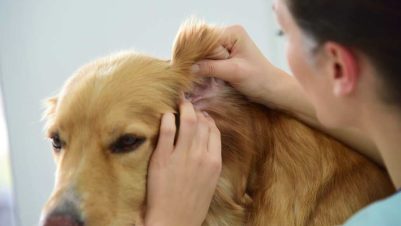NationWide Laboratories is pleased to offer several follow-up tests following routine cytological or histological examination. These tests are dependent on the submission of appropriate tissue, relevant clinical information and the result of the initial routine examination and should ideally be conducted following discussion with the case pathologist.
We can offer PCR for antigen receptor re-arrangement (PARR) testing for lymphoma on suitable histology and cytology specimens. In addition to our extensive immunohistochemistry range, we may also be able to offer immunohistochemistry on suitable cytology preparations.
We are also pleased to offer panfungal PCR on biopsy specimens where fungal infection is strongly suspected in fixed tissue samples and fluorescent in situ hybridisation (FISH) where bacterial infection is strongly suspected in fixed tissue samples.
We also offer a number of tinctorial special stains on routine fixed samples to look for infectious organisms and different pigments so please do speak to the case pathologist if you think these may be necessary.
Immunohistochemistry in tumour diagnosis
Many of you will remember a time when immunohistochemistry was a test rarely recommended. This was in part due to the limited availability of antibodies for accurate tumour identification, but also due to the limitations and costs of veterinary oncology. For many owners, hearing their animal has cancer is very distressing and for some the thought (and expense) of chemotherapy or radiotherapy is more than they wish to consider. However, with an increasing number of insured pets and rapid advances in veterinary oncology, survival times for even some of the most aggressive cancers have been greatly improved. The increasing range of chemotherapeutics available for our patients makes an accurate diagnosis imperative if the most up-to-date advice regarding the prognosis and possibilities of further treatment are to be provided to the owner.
The development of immunohistochemical markers and the publication of retrospective studies have shown that, although there are still clear indicators of a tumour’s origin in most cases, some tumours are so poorly differentiated that they cannot be classified on routine examination
Increasingly, general practitioners are faced with a histology report which suggests they use immunohistochemistry to further classify their tumour. The development of immunohistochemical markers and the publication of retrospective studies have shown that, although there are still clear indicators of a tumour’s origin in most cases, some tumours are so poorly differentiated that they cannot be classified on routine examination and some tumours such as amelanotic melanomas can mimic the architecture of other tumour types meaning that they can be misclassified on routine examination.
In addition, some markedly reactive lesions, particularly those of lymphocytic origin, can mimic neoplasia and immunophenotyping may help to differentiate between reactive and neoplastic change.
Immunohistochemistry can also be used to detect molecules that help to predict tumour behaviour (prognostic markers) and also some infectious agents.
How does it work?
Immunohistochemistry is the process of detecting “tissue antigens” in histological sections using target antibodies. In the case of tumours the “antigens” are typically structural proteins inherent to the specific cell of origin
Immunohistochemistry is the process of detecting “tissue antigens” in histological sections using target antibodies. In the case of tumours the “antigens” are typically structural proteins inherent to the specific cell of origin, for example cytokeratins in carcinomas. The antibodies bind specifically to these antigens and the subsequent antibody-antigen complex is then visualised, typically by means of a conjugated enzyme such as peroxidase that can catalyse a colour-producing reaction. Alternatively, a fluorophore, such as fluorescein or rhodamine, can be used to label the antibody. The sections are then examined microscopically and the neoplastic cells can be identified by means of positive or negative staining.
Do I need to submit special samples?
Immunohistochemistry is performed on fixed paraffin-embedded tissue sections identical to those examined in H&E staining for routine histopathology. We can use the blocks of tissue you have already submitted for immunohistochemical staining, so in most cases no additional tissue is required.
What are the limitations?
Many published antibodies are, as of yet, only available in research establishments. However, the approach we use offers a diverse range, which should cover the majority of your questions
Although there are a large number of commercially available antibodies, the time and costs of processing an individual antibody are huge and many are prohibitively expensive. As a result, many published antibodies are, as of yet, only available in research establishments. However, the approach we use offers a diverse range, which should cover the majority of your questions. We always endeavour to offer our clients the best advice we can when it comes to ancillary testing; if there is a potentially relevant antibody you have encountered in your reading which is not listed in our price list, we will try to source this for you.
Antibodies we routinely offer are detailed in our current price list. We are here to offer help and advice on the most appropriate test or tests for your particular case. Please contact us to discuss your options.
| At NationWide Laboratories we are committed to making a positive impact on animal health by offering innovative products, technology and laboratory services to your veterinary practice. We have been providing a comprehensive range of veterinary diagnostic services since 1983. Our expert teams assist you in making decisions on relevant testing for companion, exotic and farm animals. We offer full interpretation in a range of testing areas including biochemistry, haematology, cytology, histopathology, endocrinology, microbiology, etc. Our sample collection service is powered by National Veterinary Services. For more updates, follow NationWide Laboratories on LinkedIn and Twitter, visit our website or join us in our interactive online learning hub. We are looking forward to seeing you in person at London Vet Show 2021! |






